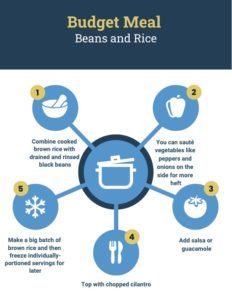Make the Thrifty Food Plan Work for Your Clients
You may recall we provided a few different updates on the Thrifty Food Plan (TFP) from the US Department of Agriculture (USDA). This USDA-funded program uses changes to nutritional guidance, food prices and American’s eating habits to calculate Supplemental Nutrition Assistance Program (SNAP) benefits. It's updated every five years.Starting on October 1, 2021, SNAP users will receive a $36.24 per person monthly increase, which is welcome news for those in need.SNAP benefits were utilized by 38 million people nationwide in 2019. That number will likely get higher given the economic crisis of the COVID-19 pandemic. According to the Center on Budget on Policy Priorities, roughly 1 in 9 Americans participate in the SNAP program’s anti-hunger efforts and 1 in 7 children are food insecure.Who receives SNAP benefits?Contrary to what some may believe, SNAP recipients are not non-working Americans. In fact, 42% of recipient are working but don’t always have access to healthful food. Over 66% of recipients are families with children and nearly 36% of recipients include an elderly person or an individual with a disability that uses SNAP benefits.What does the fund increase mean?An additional $36.24 per person per month is $1.19 per day or about $8.45 per week. While this may not seem like a big increase, any additional funds provide hope in times of need.In addition, $1.00 in SNAP benefits boosts the economy. Even in a weak economy, this generates $1.70 in food purchases, according to Moody’s Analytics. There are over 247,000 retailers in the US that accept SNAP benefits.The government’s pandemic emergency aid of 15% to SNAP participants expired at the end of September, making the TSP increase very timely. The cost of food consumed at home is expected to rise 2.5-3.5% this year. Costs for normally-inexpensive sources of protein that many families rely on (such as eggs and dairy) are also expected to rise 2.5 to 3.5% this year.Put your best food forward!With the cost of food increasing, we want to help you help your clients get the most nutritional bang for their bucks. Whether they’re using SNAP or not, spending less at the grocery checkout line keeps money available for other expenses (including homes, cars, medical expenses, etc).My favorite budget-friendly meal is black beans and brown rice. I like to make large batches of brown rice and freeze it since it takes a bit longer to prepare. If there’s ‘thyme,’ I sauté peppers and onions and have sides of salsa, guacamole, and chopped cilantro to go with the beans and rice. I look for avocados on sale when possible. Oh, and of course I usually have shredded cheddar cheese.Check back next week for more information your clients can use to make the most of SNAP benefits.By Lisa Andrews, MEd, RD, LDReferences:
- A Closer Look at Who Benefits from SNAP: State-by-State Fact Sheets | Center on Budget and Policy Priorities (cbpp.org)
- Thrifty Food Plan Re-evaluation Puts Nutrition in Reach for SNAP Participants | USDA
- USDA ERS - Summary Findings
Heeeeeeeeeere's your handout!
